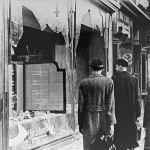
Echo chambers can be very deceiving. You go into the same sites everyday — the sites you either love, because they validate your thinking, or love to hate because you can show them to others who also hate them, and have your feelings validated, once again — and after a while you fall for an illusion of breadth and width; you begin to think that the 80 or 800 people with whom you agree are the vast silent majority; that “everybody” — or at least the right-thinking folks with common-sense — think pretty much as you do.
This is the misery of the internet and the blogosphere in general, whether you’re talking about people who get together to talk doctrine, or democracy or deep-sea fishing. The hollaback is delightful at first, then deafening; after a while you only hear yourself on an endless, usually crabby and uncharitable, soul-deadening loop.
Another illusion of the internet can really trip you up: the sense that because you are talking, and talking, and talking about something — chewing over tough morsels until they are mere spit-and-molecules — the rest of the world is equally obsessed with the subject, and it’s all being well-discussed and analysed, and probably seen-to.
But it’s not. Below I am linking to four different topics that — while keeping internet comboxes busy — are actually quite under-addressed by our pastors. These issues urgently require serious and thoughtful attention, and will be poorly served by emotionalism, rigidity or bellicose quoting from the Catechism without a primacy given to the very Gospels upon which that great book is built. These topics will require real discussion, with real listening and responses that work diligently to locate the balance between Justice and Mercy, which is where Christ resides.
Chew on them; discuss them without flinging accusations, calling names, judging souls. And let’s get our bishops and the hierarchy talking about them, hmm?
Start with this piece by Tim O’Malley, in which he takes a very measured look at a recent interview with Cardinal Raymond Burke, and actively demonstrates what it means to search out that sweet spot between Justice and Mercy:
One can disagree with Cardinal Burke’s rhetoric, his genealogy of the problem of the “crisis in masculinity” within Catholicism, and his proposed solutions while recognizing that there is a very real problem among men facing the Church. . .I suggest that we think of Cardinal Burke’s interview as an invitation toward a dialogue in the Church about the vocation(s) of the layman in the world. This dialogue must occur in such a way that it is infused with love, that it refuses to blame women for this “crisis of masculinity” (and I’m not quite sure that every moment of Burke’s interview blames women). It must be a dialogue that occurs by asking men (the fervent and the apathetic alike) what role religious practice has in their lives, if any. And if there are men who refuse to darken the door of a church (and there are many), we should ask them why. And what would bring them to participate in the Church’s life. And we might have to be willing to take up new approaches to ministering to these men, which may lead us to a new emphasis on Catholic devotional life, theological education, single sex formation, etc.
Indeed, to me, this is one of several unfinished items of business from the Synod on the family. While extreme cases were dealt with thoroughly by the bishops present in Rome (and will be again this October), I felt that insufficient attention was given to those happily married husbands and fathers, those happily married wives and mothers, who are trying to figure out how to live out their identities within the modern world.
As Saint Phillip Neri might say, “Amen!” Or, as Ralph Kramden and I might put it, “Bang, zoom!”
Keep all of that stuff in mind about why men are absent from church, and let’s bring the Young Adults of the West into it, via this post by Deacon Greg, which has inspired a lively discussion on his Facebook page.
Where are the Young Adults? Some are drawn to the Traditional Latin Mass; more seem to be waiting for the church to become a better-reflection of themselves and their sensibilities. Is it poor catechesis? Is it laziness? What do you think? We are losing young adults; how do we stop the bleed while — again — remaining true to the Gospel of Jesus Christ, and the 2,000 years of reasoned teaching that has developed from it?
Third up, and yes, the comboxes discuss it like mad, but the rest of the church says little: how is the church responding to the desires of faithful, celibate gay Catholics to be pastorally recognized as such? And for the sake of Heaven, can we not find something better to call them than the thing they hate?
But if a movement does exist among celibate queer Christians, it is a movement to stop being invisible — to be ministered to by the Church in consideration of their sexual identities, and to help demonstrate to other same-sex attracted Christians that there is value in living out the teachings of the church.
You’d think, given the times (and articles like this one, which decries the loss of so many young Catholics who believe the church to be unwelcoming) that our witness in favor of the teachings of the church would be embraced. Clearly, you’d be wrong.
Here’s what a friend who prefers to go unnamed said:. . .We are just living our lives and trying to be faithful, but we think being faithful means challenging the church to address some of its damaging failures to be a community of hospitality and grace, one that actually makes it possible for gay people to thrive.
And here is what one friendly observer added:
If my child told me he was gay and believed there was no place for him within the church, I would really hope that one of these so-called “New Homophiles” was a part of our parish’s pastoral team. I’d want my child to have a role model and a witness — someone to demonstrate that you can be gay and live a faithful, obedient Catholic life, and a rich, joyful one, without succumbing to the secular way.
At last October’s synod, the issue of “celibate gay Catholics” was never addressed, even though Catholic families are trying to square their faith with their love for their family members, and (for many) our teachings seem so “strict and unwelcoming” that church seems easier to depart from than one’s child.
What do you think? Is there room in your pew, in your parish, on your lectern, perhaps even within your pastoral team, for someone who acknowledges same-sex attraction, believes God allows this to be real in them for His own reasons and has come to view this attraction, lived in obedience to Christ Jesus, as a spiritual “gift” in much the same way that many of us — having plumbed the depths of a difficulty — discover a spiritual treasure in unusual form?
Or must we insist that the only good gay, celibate, Catholic is a gay, celibate Catholic who actively tries to “work on” being straight, in order to find his or her “real” vocation?
What do you think of this short documentary about gay, celibate Catholics? And this one? I think they’re both pretty darned good. And I think we do a stinking job of teaching about the vocation to “singleness”.
Discuss amongst yourself, but you can guess my opinion: I think it would be negligent beyond belief not to value the witness of these extraordinarily faith-filled — and very courageous — people. In a world convinced that life-without-sex is empty and meaningless, and where a vast majority of people — gay and straight; secular or churched — have no understanding at all of what the concepts of agape and sacrificial love are all about, these young adults, who have embraced the teachings of the church whole-heartedly, may well be exactly the missionaries needed to save souls in our concrete jungles and to begin a renewal of the church.
You don’t think so? The Holy Spirit uses who and what he will — no matter how much it confounds the world — to achieve his purposes, and his purposes are for the salvation of souls.
How is your agape going? How well have you convinced your children that the church’s teachings on chastity are actually about freedom and joy? Think about it. Pray about it.
Finally, this is an oldie-but-a-goodie: the fight for religious freedom is a fight for the freedom to live by one’s conscience. Can you be content to exchange freedom of religion for a freedom of worship? You know you’ve discussed it in the comboxes; has your bishop discussed it, outside of the “fortnight for freedom”?











